Bac Giang vocational institutions launch new majors to meet labour market demands
BAC GIANG – In the 2025 enrollment season, many vocational institutions in Bac Giang province have introduced new majors and strengthened partnerships with businesses to meet labour market demands.
Currently, vocational training is no longer considered a "secondary option" but has become a practical pathway for many students.
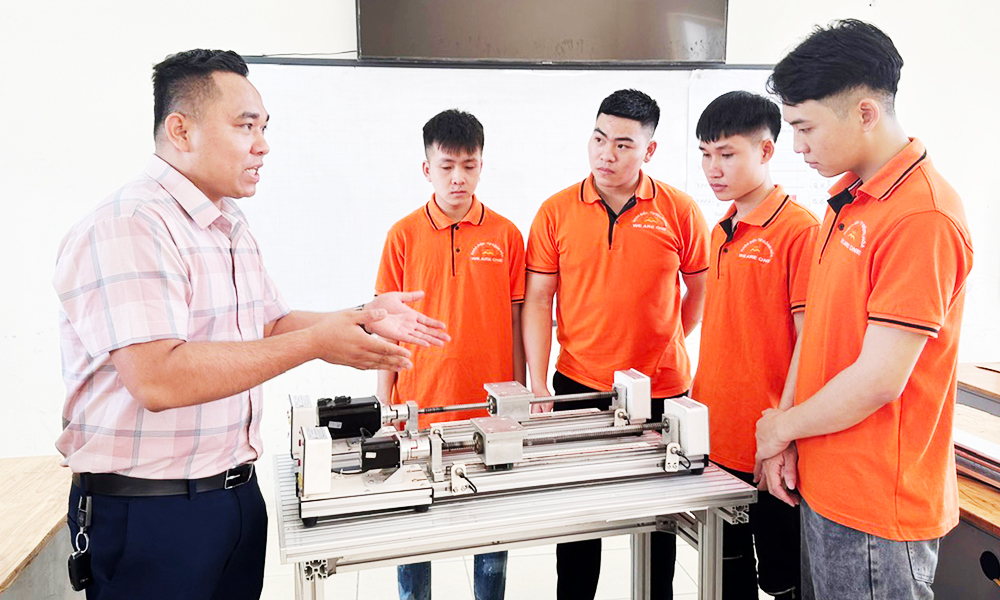 |
|
An industrial electricity practice session at the College of Industrial Techniques (Bac Giang). |
Vocational institutions are focusing on offering new majors to meet the growing demand for skilled labour in fields such as semiconductor technology, beauty care, automotive technology, mechatronics engineering, control systems, and automation — all aimed at attracting more students.
Proactively launching new disciplines, improving training quality, and ensuring job placement after graduation are key factors making vocational schools increasingly appealing.
To meet the high demand for technology-skilled labour from businesses, in the 2025–2026 academic year, the Vietnam-Korea Bac Giang College of Technology will launch two new majors: mold manufacturing and industrial automation.
The school will also continue training high-quality human resources in semiconductor technology. It has partnered with Korea Polytechnics University (the Republic of Korea) to provide this programme, offering students an opportunity to study abroad under international training cooperation agreements with universities and colleges overseas.
Currently, there are 53 vocational education institutions across the province. From 2020 to 2024, these institutions enrolled and trained an average of 30,000 people per year, including nearly 1,700 at college level, over 5,200 at intermediate level, and the rest under primary-level and short-term (under 3 months) training.
To improve human resource quality and provide students with the practical skills needed for employment, many vocational schools have designed training programmes closely aligned with real-world practices and labour market demands.
These programmes emphasise hands-on experience and the application of theory in reality.
Additionally, during the training process, schools work closely with businesses to organise internships, allowing students to gain job-specific skills.
At these companies, students operate equipment and machinery and are trained in work discipline and professionalism. As a result, graduates are able to meet job requirements immediately, reducing the need for retraining by employers.
Notably, in industries such as industrial electricity, metal cutting, automotive technology, and welding, nearly 100% of graduates are hired by businesses immediately after graduation, with starting salaries ranging from 10 to 12 million VND (400–480 USD) per month.
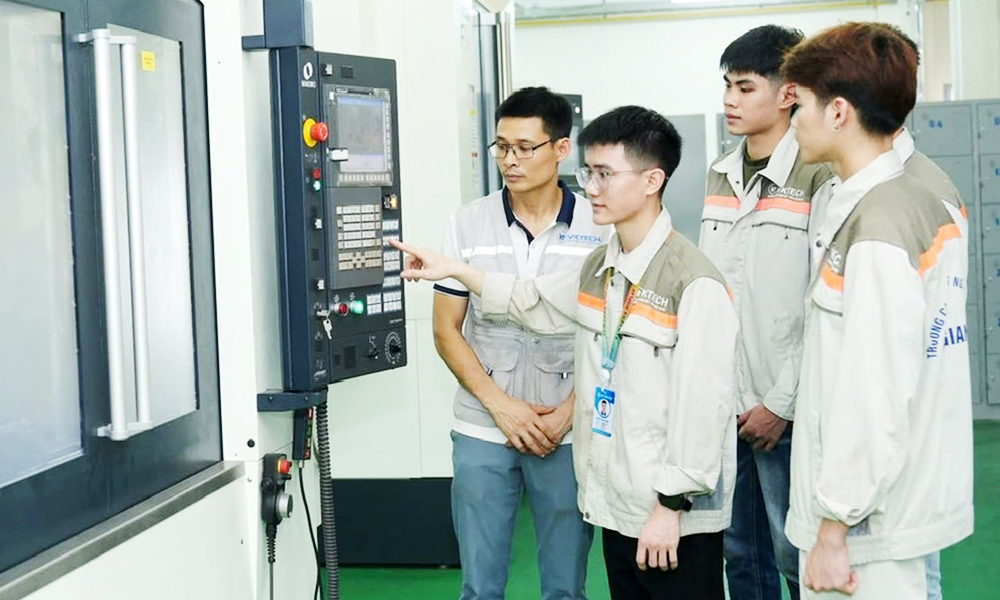 |
|
Students of the Vietnam-Korea Bac Giang College of Technology during a practice session. |
Recently, the College of Industrial Techniques partnered with China’s Guangxi Electromechanical Technical Institute to send students for practical training in electricity and automation programmes in China.
These international cooperation programmes have opened up opportunities for vocational students to pursue both short-term and long-term overseas training.
Even for students who do not pursue employment abroad, there are ample high-income job opportunities with domestic companies. Such programmes help raise technical standards and ensure students meet the rigorous demands of international labour markets, making them highly sought-after by employers.
 Bắc giang
Bắc giang





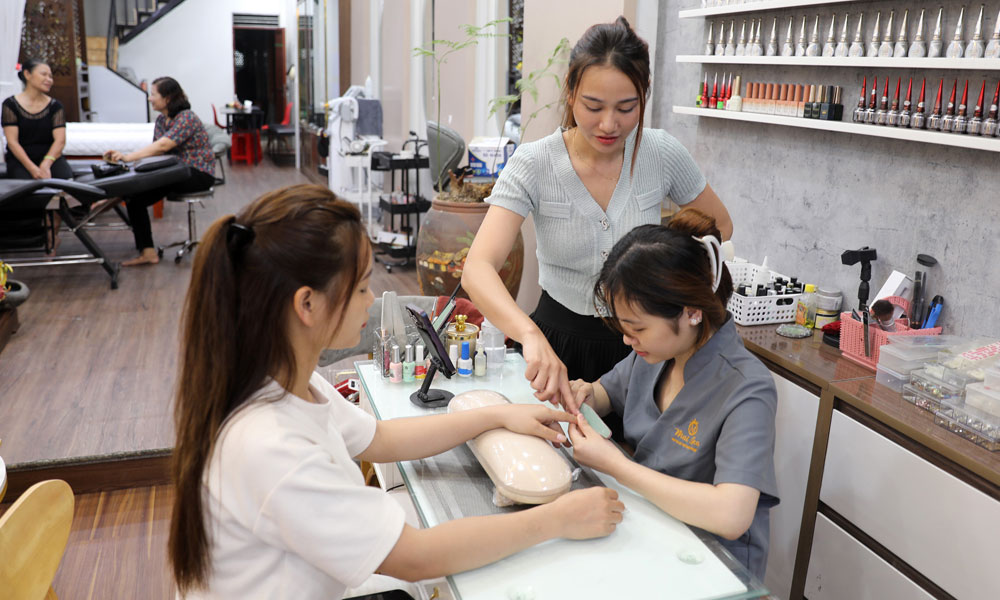

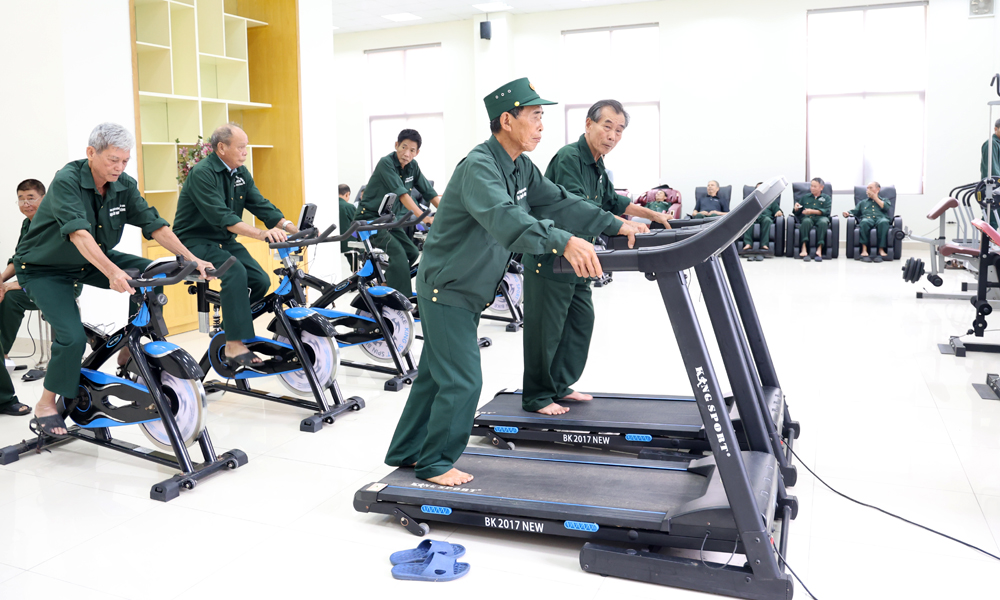


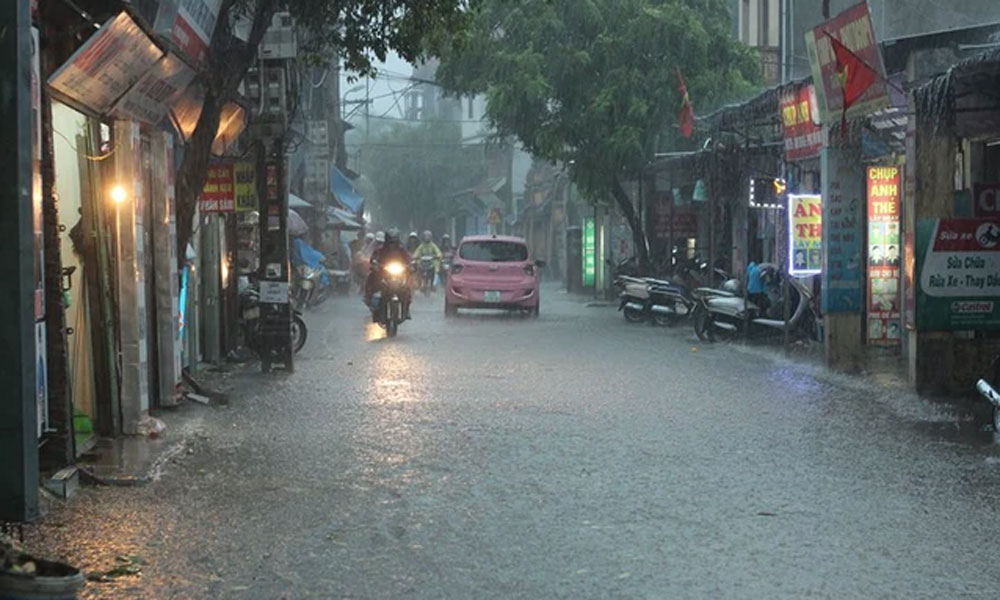
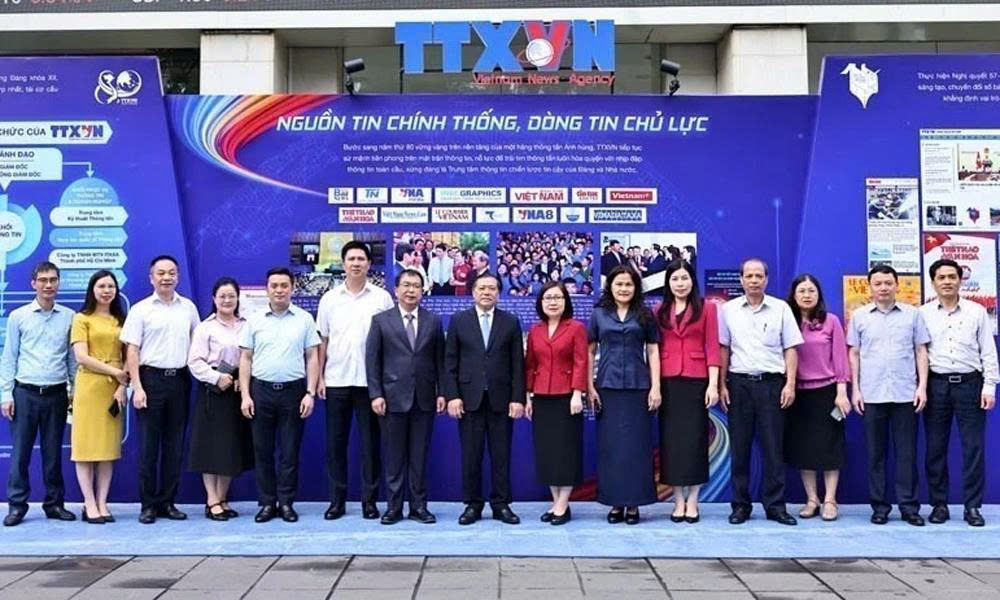


Reader's comments (0)